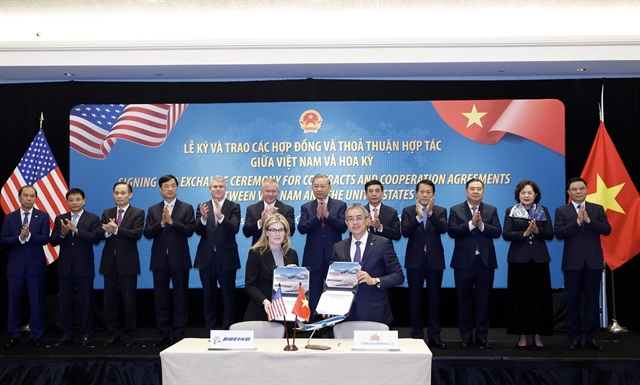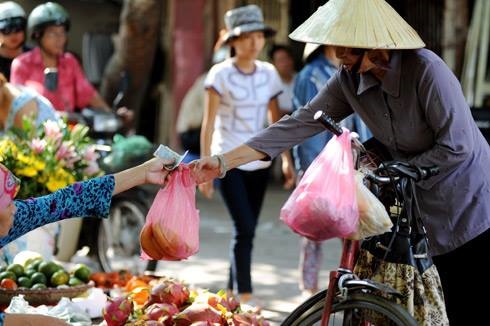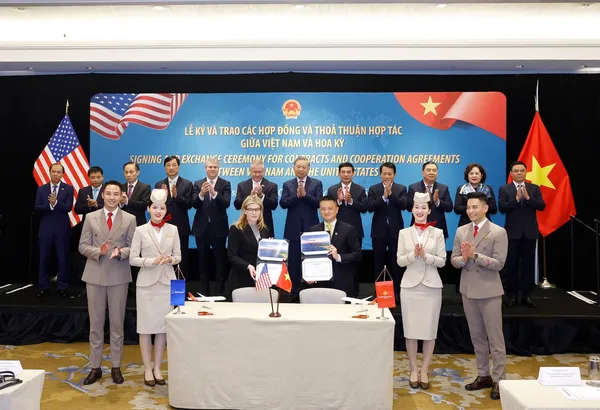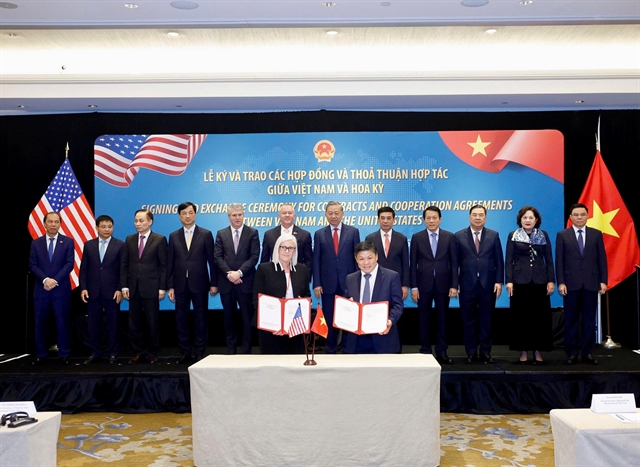.jpg) Environment
Environment

Minh Hằng, a resident of Hà Nội’s Cầu Giấy District, carries four to five plastic bags home from the market every day. Like Hằng, many Vietnamese people are accustomed to getting new single-use bags each time they shop.
 |
| Many Vietnamese people are in the habit of using new plastic bags each time they go shopping. - Photo Facebook page "Nói không với túi nylon" (Say No to Plastic Bags). |
HÀ NỘI — Minh Hằng, a resident of Hà Nội’s Cầu Giấy District, carries four to five plastic bags home from the market every day. Like Hằng, many Vietnamese people are accustomed to getting new single-use bags each time they shop.
“The bags are free and sellers are always generous in handing them out,” she told the Lao Động (Labour) newspaper. “I guess they don’t cost much.”
A survey by the HCM City Waste Recycling Fund found that 93 per cent of local people do not bring their own bags when they go shopping. Instead, they pack their goods in plastic bags provided by stores.
Hà Nội and HCM City alone throw away an average of 80 tonnes of plastic each day.
“If 10 per cent of plastic waste is not recycled, the amount of plastic discharged in the country will reach 2.5 million tonnes per year,” a representative of Ministry of Natural Resources and Environment was quoted by the Lao Động as saying.
According to a recent environment conference in Bình Định Province, Việt Nam is among the world’s top five plastic polluters – a group of countries which are responsible for up to 60 per cent of the total plastic waste found in the ocean.
Traditional, non-biodegradable plastic bags are subject to an environmental tax of VNĐ40,000 (US$1.70) per kg. Tax is set to increase to VNĐ50,000 ($2.10) as of January 1, 2019. However, legal loopholes have enabled widespread tax evasion that has caused huge financial losses for the State and limited the effectiveness of the tax.
The Việt Nam Plastic Association imports over four million tonnes of plastic annually, 1.3 million tonnes of which is polyethylene. Of this, one third is used to make 500,000 plastic containers.
These packages are also subject to an environmental tax of VNĐ40,000 per kg. While the tax was expected to bring in VNĐ20 trillion ($900 million) per year, actual numbers have been much lower. According to the finance ministry, only VNĐ54 billion ($2.3 million) is collected annually, accounting for just 0.3 per cent of the expected amount.
Even after the new tax level is applied next year, revenues from the tax are only expected to be VNĐ67.5 billion per year.
The huge gap between the expected and actual plastic tax revenue is mostly due to tax evasion and regulatory loopholes, which also allow bag sellers to maintain their low prices. According to the newspaper, one kilogram of plastic garbage bags sells online for just VNĐ40,000.
The regulations state that individuals and companies that manufacture, import or buy plastic bags from others to package their homemade products do not need to pay the tax.
Enterprises that should not qualify for this loophole have many ways to evade tax. For example, fertilizer and cigarette companies often outsource their packaging to plastic bag companies to avoid the tax.
The tax does not apply to products classified as environmentally friendly by the Ministry of Natural Resources and Environment. Recycled bags fall into this category. To evade the tax, bag manufacturers need only say they intend to recycle the bags.
The Ministry of Finance said it is difficult to monitor bag manufacturing because as many as 70 per cent of production facilities are small-scale operations.
As the tax based on bulk weight was applied, companies started producing thinner bags that have a greater impact on the environment.
To combat this trend, the Việt Nam Chamber of Commerce and Industry has proposed revising the tax to account for the number of bags instead of their weight.
A number of countries impose higher fees on bags. In the UK and Ireland, each bag is subject to a VNĐ4,500 ($0.20) tax.
China has set limits on how thin plastic bags can be, banning the production of bags less than 0.025mm thick. India imposes harsh penalties on businesses that repeatedly violate plastic regulations.
Tax collection from plastic bags remains far lower than expected and will continue to decline unless new solutions are applied. — VNS




